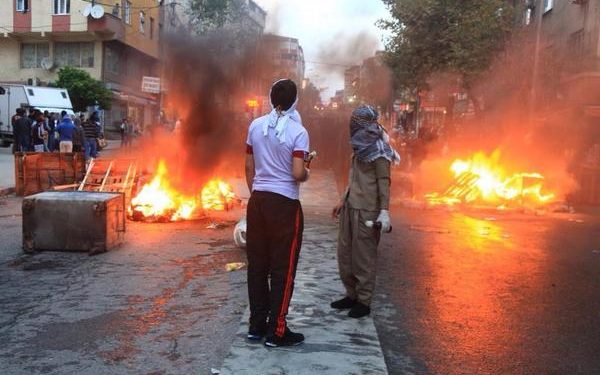CENTRAL NEWS
Youth can be defined as the section of society between 15 and 30 years, an age group with particular attributes, consciousness of which will define one’s ability to live youthfully. But just as toiling as an exploited worker will not necessarily increase one’s class consciousness, just as woman, as the most oppressed and enslaved part of patriarchal society will not necessarily be liberationist simply by means of her gender, merely being 18 or 20 does not make a person young, if they do not understand, carry and feel the meaning of youth. It is possible for someone to be twenty years old and yet live like an old person. At the same time, a person who maintains and nourishes attributes and ideals of youthfulness can remain young their entire life. In this light, youth can be understood as the entirety of emotion, thought and behaviour that express an age’s fundamental attributes. In this sense, youth is above all a spirit.
Youth is the most energetic of all eras of human life. The era of youth is the one in which new individuals emerge; it is a process of transformation from the old societal life towards a new age. In this sense, youth is always an embodiment of innovation. An organized and conscious youth will make it possible for fast and deep changes to occur in society, which in turn will contribute to the creation of free individuals and a free society that is able to solve its own issues without reliance on traditional authority. Youth’s main aspects consist of its mobility and dynamism. In this sense, youth has a revolutionary character or is at least prone to revolution. Any development that youth can bring about has great consequences and effects on society as a whole.
When defining the phenomena of yesterday and today, people often say that “we are ahead of yesterday, but behind tomorrow”. A child is defined as being ahead of its parents but behind its own offspring. These notions express societal renewal. This means that individual human beings or society do not in fact express the repetition of life, but its potentiality to develop, transform, change and create itself. As is the case with all else, we can speak of a constant innovation, development and transformation of individual and societal life, an aspect that is primarily owed to the youth. Youth in other words is a rejection and challenging of the old. The one, who does not confront and stand up against the old in the desire to overcome it, cannot meaningfully be considered young. The same applies in fact to all living beings, movements and phenomena, but especially to socialist and revolutionary movements that have a claim to philosophies, ideologies and actions to bring about radical change.
At all stages, human and social life encompass serious change and innovation in the realms of thought, emotion, material and spiritual life. This is not a mere repetition of life, but rather an expression of life’s continuation in a dialectical manner, wherein differences can reach symbiosis. Furthermore, the greater the diversity of a society, the more open and prone it will be to transformation and change.
In a way, youth can be understood as an entire revolutionary process undergone within an individual. Youth is an attitude and act of overcoming, rejecting, fighting, and contradicting all that is old, within society, as well as within the family. Playing a leading role in societal change, youth often rebel within their families and revolutionize them in some ways. This is an expression of their unwillingness to accept the old ways of life that prevail in society in a hegemonic manner. While this process sometimes happens in a passive, limited and inefficient way, at other times, this rebellion can cause major ruptures. Traditionally, as required by their social positionality, the old don’t trust the youth and attempt to dominate them by employing a variety of methods. The youth’s curiosity and explorative nature is seen as a sign of instability and subversion. In turn, the young people refuse to accept the conditions of a life in the service of the rulers, who dare to kill their futures and dreams by imposing a self-repetitive sociality alongside an individualism of isolation and alienation.




